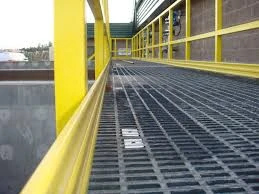
-
 Afrikaans
Afrikaans -
 Albanian
Albanian -
 Amharic
Amharic -
 Arabic
Arabic -
 Armenian
Armenian -
 Azerbaijani
Azerbaijani -
 Basque
Basque -
 Belarusian
Belarusian -
 Bengali
Bengali -
 Bosnian
Bosnian -
 Bulgarian
Bulgarian -
 Catalan
Catalan -
 Cebuano
Cebuano -
 China
China -
 China (Taiwan)
China (Taiwan) -
 Corsican
Corsican -
 Croatian
Croatian -
 Czech
Czech -
 Danish
Danish -
 Dutch
Dutch -
 English
English -
 Esperanto
Esperanto -
 Estonian
Estonian -
 Finnish
Finnish -
 French
French -
 Frisian
Frisian -
 Galician
Galician -
 Georgian
Georgian -
 German
German -
 Greek
Greek -
 Gujarati
Gujarati -
 Haitian Creole
Haitian Creole -
 hausa
hausa -
 hawaiian
hawaiian -
 Hebrew
Hebrew -
 Hindi
Hindi -
 Miao
Miao -
 Hungarian
Hungarian -
 Icelandic
Icelandic -
 igbo
igbo -
 Indonesian
Indonesian -
 irish
irish -
 Italian
Italian -
 Japanese
Japanese -
 Javanese
Javanese -
 Kannada
Kannada -
 kazakh
kazakh -
 Khmer
Khmer -
 Rwandese
Rwandese -
 Korean
Korean -
 Kurdish
Kurdish -
 Kyrgyz
Kyrgyz -
 Lao
Lao -
 Latin
Latin -
 Latvian
Latvian -
 Lithuanian
Lithuanian -
 Luxembourgish
Luxembourgish -
 Macedonian
Macedonian -
 Malgashi
Malgashi -
 Malay
Malay -
 Malayalam
Malayalam -
 Maltese
Maltese -
 Maori
Maori -
 Marathi
Marathi -
 Mongolian
Mongolian -
 Myanmar
Myanmar -
 Nepali
Nepali -
 Norwegian
Norwegian -
 Norwegian
Norwegian -
 Occitan
Occitan -
 Pashto
Pashto -
 Persian
Persian -
 Polish
Polish -
 Portuguese
Portuguese -
 Punjabi
Punjabi -
 Romanian
Romanian -
 Russian
Russian -
 Samoan
Samoan -
 Scottish Gaelic
Scottish Gaelic -
 Serbian
Serbian -
 Sesotho
Sesotho -
 Shona
Shona -
 Sindhi
Sindhi -
 Sinhala
Sinhala -
 Slovak
Slovak -
 Slovenian
Slovenian -
 Somali
Somali -
 Spanish
Spanish -
 Sundanese
Sundanese -
 Swahili
Swahili -
 Swedish
Swedish -
 Tagalog
Tagalog -
 Tajik
Tajik -
 Tamil
Tamil -
 Tatar
Tatar -
 Telugu
Telugu -
 Thai
Thai -
 Turkish
Turkish -
 Turkmen
Turkmen -
 Ukrainian
Ukrainian -
 Urdu
Urdu -
 Uighur
Uighur -
 Uzbek
Uzbek -
 Vietnamese
Vietnamese -
 Welsh
Welsh -
 Bantu
Bantu -
 Yiddish
Yiddish -
 Yoruba
Yoruba -
 Zulu
Zulu
Fertilizer Storage Solutions Using Durable and Lightweight Fiberglass Tanks Systems
Understanding Fiberglass Fertilizer Tanks A Reliable Choice for Agriculture
In the modern agricultural sector, efficient management of fertilizers is crucial for ensuring optimal crop production. Among the various storage solutions available, fiberglass fertilizer tanks have emerged as a preferred choice for many farmers and agricultural businesses. These tanks offer a unique combination of durability, chemical resistance, and cost-effectiveness, making them ideal for the storage of various fertilizers.
What are Fiberglass Fertilizer Tanks?
Fiberglass fertilizer tanks are storage vessels made from reinforced plastic material that is a combination of glass fibers and resin. This composite structure provides the tanks with exceptional strength while keeping them lightweight. The manufacturing process of fiberglass involves the layering of glass filaments and resin, which is cured to form a solid, resilient container.
Advantages of Fiberglass Fertilizer Tanks
1. Corrosion Resistance One of the most significant advantages of fiberglass tanks is their resistance to corrosion. Unlike steel or aluminum tanks, fiberglass does not corrode when in contact with harsh chemicals, making it ideal for storing fertilizers that can be acidic or alkaline. This property not only prolongs the lifespan of the tank but also ensures that the stored fertilizers remain uncontaminated.
2. Lightweight and Durable Fiberglass tanks are much lighter than traditional metal tanks. This lightweight nature makes transportation and installation a breeze, reducing labor costs. Despite being lightweight, fiberglass materials are exceptionally durable and can withstand the rigors of outdoor conditions. They are also less prone to damage from impacts compared to other materials.
3. Cost-Effectiveness While the initial investment in fiberglass tanks may be higher than that of conventional tanks, their longevity and low maintenance requirements often result in lower overall costs. These tanks do not require regular painting or treatment against corrosion, which can save farmers substantial amounts of money over time.
fiberglass fertilizer tanks

4. Versatility Fiberglass fertilizer tanks can be manufactured in various sizes and shapes to accommodate different storage needs. This adaptability makes them suitable for a wide range of agricultural applications, from small farms to large industrial operations.
5. Environmental Benefits The use of fiberglass tanks contributes to sustainable agricultural practices. Their durability means less frequent replacements, which leads to less waste in landfills. Additionally, fiberglass tanks can be recycled at the end of their life cycle, further minimizing their environmental impact.
Considerations for Use
While fiberglass fertilizer tanks offer numerous advantages, there are some considerations to keep in mind. The temperatures at which fertilizers are stored can affect the integrity of the tank. Extreme heat or prolonged exposure to sunlight can degrade fiberglass materials over time. Therefore, placing tanks in shaded areas or using protective coverings is advisable.
Moreover, while fiberglass is resistant to many chemicals, some highly aggressive substances may still damage the material. Farmers should consult manufacturers' specifications to ensure compatibility between the tank material and the fertilizer being stored.
Conclusion
In conclusion, fiberglass fertilizer tanks represent a progressive solution for modern agricultural needs. Their unique properties, including corrosion resistance, lightweight nature, and versatility, make them a practical choice for effective fertilizer management. By investing in these tanks, farmers can ensure they are not only facilitating optimal crop production but also contributing to a more sustainable agricultural future. As the industry continues to evolve, fiberglass tanks will likely play an increasingly central role in meeting the complex challenges of agricultural storage and management.









